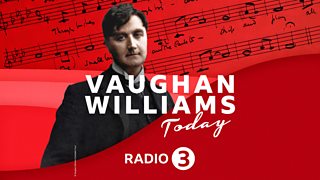
Becoming a Celebrity
Donald Macleod explores Messiaen's period of fame. With Prelude; Monodie; exspecto ressurrectionem mortuorum; Meditations sur le mystère de la Sainte Trinite (VIII and IX).
Donald Macleod explores Olivier Messiaen's period of fame
Olivier Messiaen was the single most important contributor to the organ repertoire in the twentieth century. He took up learning the organ whilst he was a student in Paris, and was fortunate to hear virtuoso organists around the city including Louis Vierne, Charles Tournemire, Charles-Marie Widor and Marcel Dupré. Aged just twenty-two, he succeeded Charles Quef as titular organist at the Sainte-Trinité in Paris. Messiaen remained in this post for over sixty years, composing many solo works for the organ that pushed the instrument to its very limits. He rose to become one of the leading composers in France, and also a worldwide musical celebrity. This week Donald Macleod focuses each day on one specific organ work Messiaen composed, whilst exploring the period in which it was written along with those other instrumental works from the same time.
By the 1960s Olivier Messiaen had married his second wife, the pianist Yvonne Loriod. The couple were invited to tour Japan in 1962, where he was enthralled by the landscape and the birds whose songs he recorded. Messiaen was also amazed by the enthusiastic reception they received in Japan, where they were treated like celebrities and constantly filmed. He had now risen to a figure of national and international importance, and soon came a commission from André Malraux, the Minister of Culture under General de Gaulle. For this commission Messiaen composed his orchestral work Et exspecto ressurrectionem mortuorum, which was a memorial to the French dead of the two world wars. He was still very active as an organist at the Sainte-Trinité in Paris, and a few years later in 1969 Messiaen completed his Meditation on the mystery of the Holy Trinity for organ.
Préludes pour piano
Håkon Austbø, piano
Monodie
Gillian Weir, organ
Et exspecto resurrectionem mortuorum
Cleveland Orchestra
Pierre Boulez, conductor
Méditations sur le mystère de la Sainte Trinité (Meditation VIII & IX)
Olivier Messiaen, organ
Producer Luke Whitlock.
Last on
Music Played
-
![]()
Olivier Messiaen
Prelude
Performer: Haakon Austbo.- Naxos: 8554655.
- Naxos.
- 1.
-
![]()
Olivier Messiaen
Monodie
Performer: Gillian Weir.- Priory:PRCD9256.
- Priory.
- 8.
-
![]()
Olivier Messiaen
Et exspecto resurrectionem mortuorum
Orchestra: The Cleveland Orchestra. Conductor: Pierre Boulez.- DG RECORDS : 445827-2.
- DG RECORDS.
- 9.
-
![]()
Olivier Messiaen
Meditations sur le mystere de la Sainte Trinite (extract)
Performer: Olivier Messiaen.- ERATO : 2292-45867-2.
- ERATO.
- 4.
Broadcasts
- Thu 13 Jul 2017 12:00Â鶹ԼÅÄ Radio 3
- Thu 13 Jul 2017 18:30Â鶹ԼÅÄ Radio 3
Vaughan Williams Today
Beethoven Unleashed – the box set
What was really wrong with Beethoven?
Composers A to Z
Who knew? Five eye-opening stories from Composer of the Week
Five reasons why we love Parry's Jerusalem
What is the strange power of Jerusalem which makes strong men weep?
A man out of time – why Parry's music and ideas were at odds with his image...
The composer of Jerusalem was very far from the conservative figure his image suggests.
Composer Help Page
Find resources and contacts for composers from within the classical music industry.






